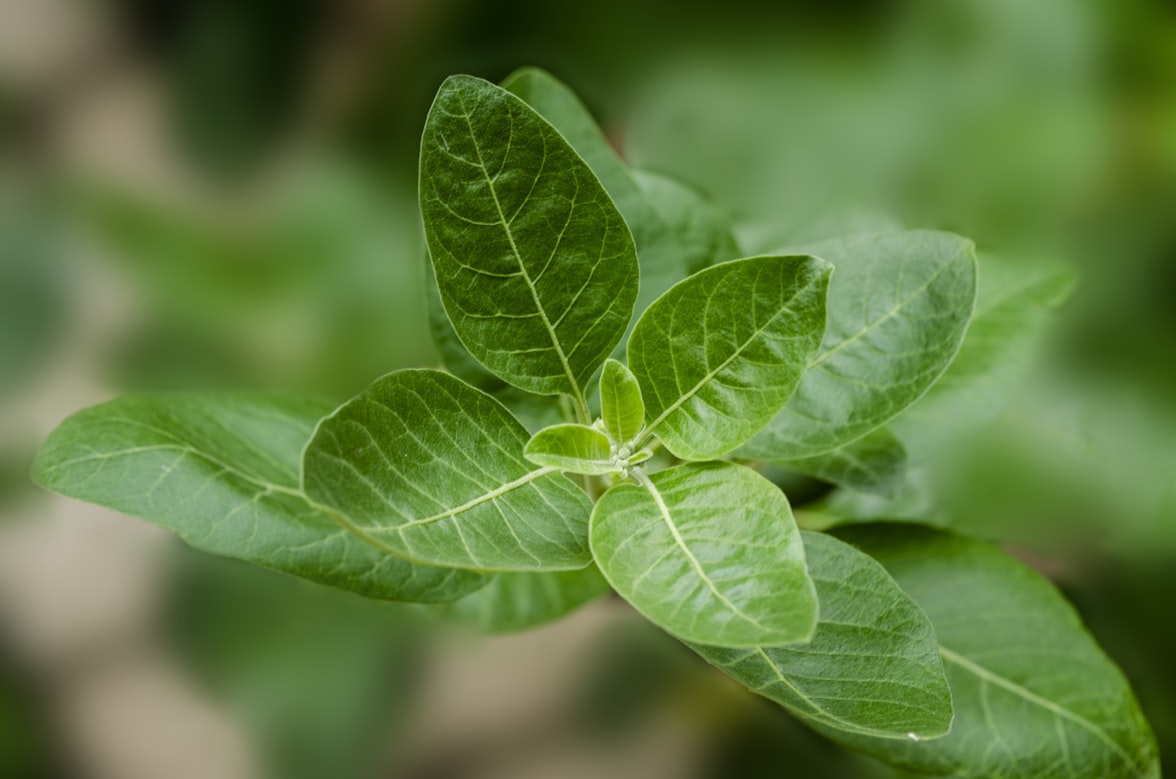
Ashwagandha has been a popularly known herb for its health benefits for thousands of years in Ayurvedic medicine. Also known as Indian ginseng or winter cherry, it's highly valued for its adaptogenic properties. In essence, it means that the herb is capable of helping the body cope with stress and anxiety while promoting overall health and wellness. Ashwagandha can be found in many forms, like powders, capsules, and extracts, and it can be consumed throughout the year. However, the question remains - can we take Ashwagandha in summer?
Below we'll explore, Can we take Ashwagandha in Summer?
1. Adaptogenic Properties:
Ashwagandha is an adaptogenic herb, which means it can help the body to adapt to stress and anxiety. This is especially important during the summer months when high temperatures and increased activity levels can put a strain on the body. Ashwagandha can help to reduce the levels of stress hormones like cortisol, which can hurt the body if left unchecked. Additionally, ashwagandha can help regulate the immune system and improve overall energy levels, making it an excellent supplement for those who are looking to maintain their health during the summer months.
3. Cooling Properties:
Ashwagandha also has cooling properties, which can help to alleviate the heat and inflammation that often accompany the summer season. According to Ayurveda, ashwagandha has a cooling effect on the body, which can help to balance out the heat and humidity that can lead to feelings of lethargy, irritability, and dehydration. Additionally, ashwagandha can help to soothe the digestive system, which can be particularly helpful during the summer months when the heat can cause digestive issues like bloating, gas, and constipation. By incorporating ashwagandha into your summer routine, you may be able to stay cool and comfortable even during the hottest days of the year.
4. Dosage:
If you are planning to take ashwagandha during the summer, it is crucial to adhere to the recommended dosage to avoid any unwanted side effects. The suitable amount can differ based on your age, weight, and overall health. For adults, the typical dose ranges from 300-600 mg of ashwagandha extract, taken once or twice a day. It's important to talk to a healthcare provider before adding any new supplements to your routine. Keep in mind that consuming excessive amounts of ashwagandha can cause stomach discomfort, diarrhea, or vomiting. Furthermore, ashwagandha might interact with some medications, so it's essential to speak with a doctor before taking it, especially if you're on prescription medication.
5. Side Effects:
Although ashwagandha is generally safe, consuming it in high doses or for a prolonged time may cause some side effects. These side effects may include headaches, gastrointestinal issues, and allergic reactions. It is important to follow the recommended dosage and consult with a healthcare professional before taking ashwagandha, particularly if you are pregnant, breastfeeding, or have any underlying medical conditions. If you experience any negative reactions, it is recommended to discontinue use immediately.

6. Ayurvedic Remedies:
In Ayurvedic medicine, ashwagandha has long been used as a natural remedy for various health issues such as anxiety, stress, and fatigue. In the summer season, Ayurveda suggests combining ashwagandha with cooling herbs like Shatavari, fennel, and coriander to balance its warming properties. Furthermore, ashwagandha can be included in a healthy lifestyle that includes regular exercise, sufficient hydration, and stress-reducing practices such as yoga or meditation. Consulting an Ayurvedic practitioner can help determine the best way to incorporate ashwagandha into your summer wellness routine.
7. Choosing the Best Ashwagandha Supplement:
When considering taking ashwagandha supplements during summer, it's important to choose a high-quality supplement from a reputable brand. Look for supplements that are made with organic ashwagandha root and have been third-party tested for purity and potency. It's also recommended to choose supplements that are free of additives and fillers and to follow the recommended dosage instructions on the label. Check this organic Ashwagandha. Consulting with a healthcare provider before starting any new supplement regimen is also advised, especially if you have any underlying health conditions or are taking any medications.
8. Safety Precautions:
When taking any herbal supplement, it is important to practice safety precautions to ensure that you get the maximum benefits without any adverse effects. If you are considering taking ashwagandha, it is recommended to consult with a healthcare professional to ensure that it is safe for you. Pregnant and breastfeeding women, as well as individuals with underlying medical conditions, should exercise caution before taking ashwagandha. Additionally, it is important to follow the recommended dosage and not exceed it, as high doses may lead to negative side effects.
Summary:
Ashwagandha is a powerful adaptogenic herb that offers numerous benefits for the body and mind, including its cooling properties that can help alleviate summer heat. While it is generally safe for most people to take ashwagandha, it is important to follow dosage recommendations and take precautions if you have certain medical conditions or are pregnant or breastfeeding. Choosing a high-quality supplement from a reputable brand can also ensure the best results. Overall, taking ashwagandha in the summer can be a great way to support your overall health and well-being.